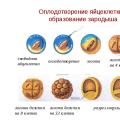Some nouns refer to general concepts, such as qualities, substances, processes, and abstract concepts, rather than individual objects or events. Such nouns have only one form, are not used with numerals, and are usually not used with the determiners the, a, and an.
… a boy or girl with intelligence .
The donkey needed food and water.
… new techniques in industry and agriculture.
I talked with people about religion , death , marriage , money , and happiness .
Such nouns are called uncountable (uncount nouns or uncountable nouns).
The following is a list of the most common uncountable nouns:
absence, access, age, agriculture, anger, atmosphere, beauty, behavior, cancer, capacity, childhood, china, comfort, concern, confidence, courage, death, democracy, depression, design, evil, existence, experience, failure, faith, fashion, fear, finance, fire, flesh, food, freedom, fun, ground, growth, happiness, health, help, history, ice, loneliness, love, luck, magic, marriage, mercy, music, nature, paper, patience, peace, philosophy, pleasure, policy, poverty, power, pride, protection, purity, rain, security, silence, sleep, strength, snow, spite, status, stuff, teaching, technology, time, trade, training, transport, travel, trust, truth, violence, waste, water, duly, independence, reality, wealth, earth, industry, relief, weather, education, insurance, religion, welfare, electricity, intelligence, respect, wind, energy, joy, safety, work, environment, justice, salt, worth, equipment, labor, sand, youth
Noun-verb agreement
When an uncountable noun is used as the subject of a verb, the verb is used in the singular.
Fear begins to creep slowly into their hearts.
They believed that local democracy was essential to good government.
Electricity is potentially dangerous.
Attention!!!
V English language there are words that are uncountable nouns, but denoting objects and concepts that are considered as countable in other languages. The following is a list of the most common uncountable nouns of this kind:
advice advice, hair hair, knowledge knowledge, money money, research research, luggage, homework homework, luggage luggage, news news, spaghetti spaghetti, furniture furniture, information
Quantity designation
Despite the fact that uncountable nouns denote things that cannot be counted and are not used with numbers, it is often necessary to indicate the amount of something expressed by an uncountable noun.
Sometimes this becomes possible by using a general determinant, such as all, enough, little or some before the noun.
I gave him little time.
There’s some chocolate cake over there. Nouns can be preceded by a quantifier (a quantifier). For example, when referring to water, you can say drops of water (drops of water), a cup of water (a cup of priests), four gallons of water (four gallons of water) etc.
Real nouns
If there is confidence that the reader or listener will understand that we are talking about some amount of some substance, there is no need to use quantifiers.
For example, in a restaurant, you can order three cups of coffee − three cups of coffee, but you can order three coffees - three coffees, because the person to whom the request is made understands that three cups of coffee are meant. Thus, an uncountable noun coffee becomes countable.
Nouns used in this way are called mass nouns. Real nouns are often used to refer to a certain amount of food or drink.
We spent two hours talking over coffee and biscuits in her study.
We stopped for a coffee at a small cafe.
Similarly, some uncountable nouns can act as substances when denoting varieties of something. For example, the word cheese usually acts as an uncountable noun, but you can talk about a "great variety of cheeses" - a large range of cheeses.
… plentiful cheap beer.
… profitsfrom low-alcohol beers.
We were not allowed to buy wine or spirits at lunch time.
I like wines and liqueurs.
Real nouns denoting certain substances are used mainly in technical contexts. So, for example, the word steel in most cases it acts as an uncountable noun, however, if it is necessary to distinguish between different grades of steel in the context, it can act as a real noun.
… imports of European steel .
… the use of small amounts of nitrogen in making certain steels .
List of real nouns:
claret, fertilizer, lotion, preservative, wine, cloth, fuel, meat, ribbon, wood, coal, fur, medicine, salad, wool, coffee, gin, metal, sauce, yarn, cognac, glue, milk, sherry, yoghurt, coke, ink, oil, soap, cotton, insecticide, ointment, soil, curry, iron, ore, soup
Nouns that can be countable or uncountable
There are also a number of other nouns that can be uncountable when denoting something in general and countable when denoting a particular manifestation of this general.
Some nouns are widely used as both countable and uncountable. For example, the word victory (victory) denotes the concept of winning, winning in general, while a victory denotes a special case of someone's victory or gain.
Just as we gained fame in victory, we lost nothing in defeat.
She is still waiting and yearning for her first victory.
Many parents were alarmed to find themselves in open conflict with the church.
Russia has been successful in previous conflicts.
Some uncountable nouns rarely appear as countable nouns, or do not go into the category of countable ones at all; in other words, they do not occur in the plural or with numerals.
… a collection of fine furniture .
We found Alan weeping with relief and joy .
He saved money by refusing to have a telephone.
Uncountable nouns with -s
Some nouns ending in -s and having, at first glance, the form of the plural, in reality are uncountable nouns. This means that when such nouns are used as the subject, the verb is used in the singular.
Such nouns for the most part designate school subjects, activities, games and illnesses.
Physics is fun.
Politics plays a large pan in village life.
Economics is the oldest of the social sciences.
Billiards was gradually replaced by bridge.
Measles is in most cases a relatively harmless disease.
The following is a list of uncountable nouns that end in -s .
These nouns designate subjects and activities:
acoustics, classics, aerobics, economics, aerodynamics, electronics, aeronautics, genetics, athletics, linguistics, logistics, politics, mathematics, statistics, mechanics, thermodynamics, obstetrics, physics
Some of these nouns are sometimes used in the plural, especially when referring to a particular person's job or activity.
His politics are clearly right-wing.
The following nouns denote the names of games:
billiards, cards, drafts, tiddlywinks, bowls, darts, skittles
The following nouns denote the names of diseases:
diabetes, mumps, rickets, measles, rabies, shingles
To countable nouns include nouns denoting animate and inanimate objects, concepts and phenomena that can be counted.
For instance: two dogs, five books, three dreams, four earthquakes.
To the uncountable nouns include nouns denoting animate and inanimate objects, concepts and phenomena that cannot be counted individually. Uncountable nouns usually denote some mass/substance (water, salt, meat).
There are nouns that both in English and Russian are used only in plural, for example: jeans (jeans).
Agreement of countable and uncountable nouns in number with the verb to be
If the countable noun is in the singular, then is agrees with it:
My new car is very expensive
My new car is very expensive
If in the plural, then it agrees with it are:
My marks for the last test are very bad
My grades for the last test are very bad
All uncountable nouns only agree with the singular verb is:
BUT, just like in Russian, uncountable nouns CAN be considered auxiliary means:
Two bottles of beer - Two bottles of beer
Three plates of porridge - Three plates of oatmeal
Seven barrels of oil - Seven barrels of oil (oil); etc.Then these aids, and not the objects themselves, agree with the verb:
Two bottles of beer are on the table.
Two bottles of beer on the table.Four pieces of bread are on the floor.
Four slices of bread on the floor.Some nouns that are plural in Russian are singular in English:
clock - watch, money - money
They agree with the verb in the singular:
This watch (clock) is always correct.
This clock is always accurate.However, if we mean a set of watches (devices), then we can say Clocks / Watches
Money always will be singular:
Money is not everything.
Money is not everythingThere are nouns that are used only in the plural in both English and Russian, for example: jeans (jeans)
In this case, they agree with the plural verb:
My new Levi's jeans are from the USA.
My new Levi's jeans are from the USA.BUT, if we count jeans as pairs (pair), then it will not be the noun jeans that will agree with the verb, but the "counter" pair:
This pair of jeans is from the USA.
This pair of jeans is from the USA.A very interesting exception word is news. Although this noun is plural in both languages, in English it agrees with the verb in the only including:
no news is good news!
No news is good news.
In one of our topics (Countable and uncountable nouns. Using the article “a/an”), we talked about the fact that the words “fruit” and “fish” can be both countable and uncountable nouns.
Let's talk about these cases so that we know when the use of the article is necessary and when it is not.
fruit
1. So if you mean fruits as a kind of food those. this is a common collective name, then fruit (fruit) is considered uncountable noun that can have only singular form — fruits, and consequently, used without article“a”/”an” and agrees with the singular verb.
E.g. Fruit is very useful food. - Fruit is a very healthy food.
Canned fruit. - Canned fruits.
2. However, if by fruit you mean some particular kind of fruit(e.g. citrus or seasonal), then fruit has only the plural form. h. – fruits and is also used without the article “a”/”an”.
— What are the local fruits? What fruits are most common in this area?
— Mostly pears and apples. “Mainly pears and apples.
3. When it comes about the botanical term "fruit - fruits" any plant, then in this case it will be: a fruit - fruits
E.g. These trees give very tasty fruits. These trees bear very tasty fruits.
4. The word "fruit" also has a figurative meaning - success, fruits of labor, those. the result of some activity. In this case, the word "fruit" will stand in plural in combination With definite article and the preposition of:
the fruits of learning - the fruits of learning,
the fruits of labor - the fruits of labor.
5. In American slang "a fruit" translates as "weird guy" Remember the Russian equivalent: "He's still that type!".
E.g. He comes on like a fruit. - He gives the impression of a strange type.
Fish
1. In its basic meaning "fish" (i.e. some kind of fish) the word "fish" is a countable noun whose singular form is and pl. matches: a fish - two fish - many fish , i.e. in the singular, the article “a”/”an” is required.
Please note that the coincidence of the forms of units. and many others. numbers will also be observed in fish species, i.e.:
a code(cod) - three cod (three cod) - many codes(lots of cod)
a pike(pike) - two pike (two pikes) - many pike(many pikes)
2. If you use the word "fish" meaning " different kinds fish", then it is necessary to say fishes and coordinate the word with the verb in the plural, i.e. there can be no talk of any article “a” / “an”.
The Peter was given a colorful album on tropical fishes. – Petya was presented with a colorful album dedicated to tropical fish.
3. If the word "fish" is used how food product, then "fish" counts uncountable noun that has only unit form
Fish is very helpful food. - Fish is a very healthy food.
4. If "fish" is used as a collective noun, i.e. you are talking about fish as a class, then this word will be consistent with plural verb. and have only the form fish. The article “a”/”an” cannot be used.
How do fish breathe? How does a fish breathe?
We suggest you also remember a few set expressions with the word "fish":
to feel like a fish out of water - feel out of place.
to drink like a fish - get drunk, drink without drying out
neither fish, nor fowl - neither fish nor meat
freshwater (saltwater) fish - freshwater (sea) fish
fish story - "hunting story"; fables
filleted fish - fish fillet
an odd fish - a strange person
All's fish that comes to his net. - On lack of fish and cancer fish
Therefore, in English, all objects are divided into countable (those that can be counted) and uncountable (those that cannot be counted).
This topic is basic and very important. Therefore, if you do not deal with it from the very beginning, with further study of the language, you will make mistakes.
In this article I will tell you about countable and uncountable nouns and the features of their use.
From the article you will learn:
- General comparison table for countable and uncountable nouns
How to determine if a noun is countable or not?
Noun- part of speech denoting an object or person and answering the question "who?", "What?".
How to understand what subject is in front of us: countable or not?
It seems that everything is simple. However, there is a little trick here.
Let's take the floor money (money). Can we count money? Of course we can, you say. However, in English, money refers to uncountable nouns.
Can we say: “one money, second money, third money”? No, we count rubles/dollars/euro: one ruble, two rubles, etc. But we cannot count the word money, so it will be uncountable.
The same goes for water, milk, lemonade and other drinks. We cannot count these concepts ourselves: one water, the second water.
Therefore, liters and containers will be countable, but the liquid itself will be uncountable.
Let's look at each concept separately.
Countable nouns in English

countable nouns(count nouns) are those items that we can count.
For instance:
One apple, two apples, three apples.
One apple, two apples, three apples.
Such words have their own characteristics, let's look at them.
1. Countable nouns are plural
- in the singular (one item)
- plural (several items)
In English, the plural is formed by adding the ending -s to a word.
For instance:
cat - cats
cat - cats
cup - cups
cup - cups
bags
bag - bags
pen-pens
pen - pens
I talked in detail about the formation of the plural in this article.
2. With countable nouns, we use the article a/an
An article is a small label that is placed before certain words to help us catch information about them.
The article a / an comes from the word one and means “one thing”, “some, some”.
We use this article when we say about one subject. Therefore, we can only use it with items that we can count.
For instance:
a cat
(one) cat
a bag
(one) bag
a phone
(one) telephone
a pen
(one) pen
You can read more about articles in English.
In addition to the article, we can use other words, depending on the meaning we want to convey.
Let's look at all the words that can come before the subject.
- The article a / an (when we are not talking about something specific, but about a general concept)
She bought a dress.
She bought a dress (some dress, we don't know which one exactly)
- The article the (if we are talking about something specific)
She bought the dress.
She bought a dress (we are talking about a specific dress that we know about)
- Possessive pronouns my, your, his, her, their, our (my, yours, his, her, them, ours). They show who owns the item.
She bought my dress.
She bought my dress.
- Words this (this), that (that)
She bought this dress.
She bought this dress.
3. With plural countables, we use the words many and few /afew
There is words that we can only use with things that we can count:
- many - a lot
- few - little
- a few - a few
For instance:
We dealt with countable nouns, and now let's move on to uncountable ones.
Uncountable nouns in English

(uncount nouns) - something that we cannot count.
Uncountable nouns include:
- Food(usually something small, like a grain or shapeless)
Butter (butter), cheese (cheese), meat (meat), salt (salt), pepper (pepper), bacon (bacon), bread (bread), chocolate (chocolate), ice (ice), etc.
- Liquid
Water (water), lemonade (lemonade), coffee (coffee), milk (milk), tea (tea), wine (wine), petrol (gasoline), oil (oil), etc.
- materials
Gold (gold), iron (iron), wood (wood), plastic (plastic), paper (paper), etc.
- abstract concepts
Luck (luck), music (music), news (news), progress (progress), information (information), knowledge (knowledge), etc.
- gases
Air (air), oxygen (oxygen), smoke (smoke), etc.
- Diseases
Measles (measles), flu (cold), cancer (cancer)
- Sports
Chess (chess), baseball (baseball), football (soccer), poker (poker), golf (golf), etc.
- weather phenomena
Weather (weather), heat (heat), wind (wind), rain (rain), snow (snow), etc.
Uncountable nouns also have their own characteristics.
1. They don't change in numbers
Such words have only one form - singular.
2. With such words, we never use the article a / an
We cannot use the article a/an with something we cannot count. Usually with these words we use:
- Article the
For instance:
I will take the chocolate.
I will take chocolate
- The word some - a little, a few
For instance:
I will take some chocolate.
I'll take some chocolate.
3. With uncountable items, we use the words much,little/ alittle
There are words that we can only use with uncountable items:
- much (many)
- Little (little)
- A little
For instance:
You drink so much coffee!
You drink so much coffee!
They have little money.
They don't have much money.
4. These concepts become countable when we talk about a piece / glass / liter / kilogram of something.
Uncountable:
Can you give me some bread?
Can you give me some bread?
Bring me some water.
Bring me some Water.
Countable:
Can you give me a piece of bread?
Can you give me a piece of bread?
Bring me a glass of water.
Bring me a glass of water.
To consolidate the difference between countable and uncountable nouns, let's look at the general table
Let's take a look at the general table and once again trace the difference between these concepts.
| countable nouns | Uncountable nouns |
| Something we can count For example: apple, cup, pen, phone |
Something we can't count For example: sugar, water, information, money |
| May be plural For example: apple - apples, pen - pens |
Can't be plural For example: money - moneys, sugar - sugars |
| Can be used with the article a Also used:
|
Cannot be used with the article a Most often used with:
|
| Used with the words many, few / a few For example: many cups, a few apples |
Used with much, little/ a little For example: much money, a little water |
So, we dealt with this topic. Now let's put it into practice.
Reinforcement task
Exercise 1: Choose which of the following words are countable and which are uncountable:
Pear, football, milk, dress, water, lemon, sugar, car, ball, money, coffee, house, butter, bread, candy.
Task 2: Translate the following sentences into English:
1. I have a few oranges.
2. Has she made a lot of money?
3. Does she have many books?
4. Bring me a glass of wine.
5. I need sugar.
Countable nouns - those nouns that can be counted piece by piece (two cups, three books, a thousand people). Uncountable nouns can have both singular and plural. one cup - one cup, five cups - five cups.
Uncountable- nouns that cannot be counted (water, love, money). That is, these are those nouns that cannot be preceded by a number indicating their number. For example, you cannot say: five loves, eight waters, ten money. The most common uncountable nouns are abstract concepts, bulk substances and liquids. Uncountable nouns have only the singular form, even if they are translated into Russian in the plural. For example: money - money, hair - hair.
Rules for the use of phrases with countable and uncountable nouns
| countable nouns |
Not countable nouns |
| Many
- lot |
Much
- lot |
|
Much and many are translated as "a lot", but much is only used with uncountable nouns, and many is only used with countable nouns.. Much and many can be used only in interrogative negative sentences . For affirmative sentences, "a lot of" is used.
The question "how much? how much?" in English is given in different ways: for uncountable - how much? for countable - how many? (It is impossible to say how a lot of?) |
|
|
A lot of - lot In affirmative sentences, to say "a lot" the phrase " a lot of" (lots of). It is used with both countable and uncountable nouns. It can also be used in interrogative and negative sentences instead of the words much and many.
|
|
|
a few - Little I have a few books - I have a few books (a few books) |
a little - Little I have a little time - I have a little time |
|
few - few I have few books - I have few books |
little - few I have little time - I have little time |




